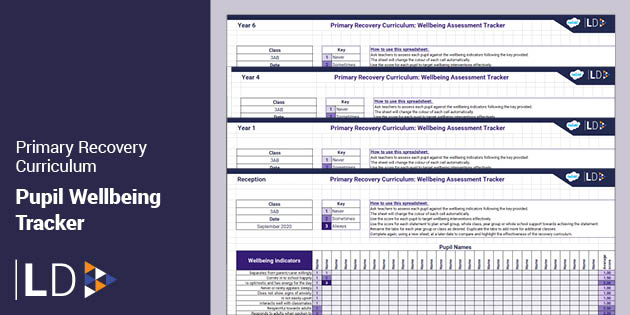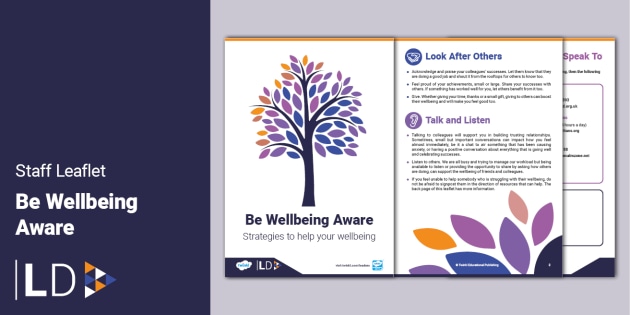



How to improve student wellbeing.

In light of the Royal College of Psychiatrists reporting a significant 53% rise in the number of young people requiring urgent care from mental health services (CAMHS), Digest spoke to leading wellbeing expert, Kirsten Colquhoun, to find out what steps leaders can take to reduce pupil stress.
As Dr Elaine Lockhart, Chair of the Royal College of Psychologists Child and Adolescent Faculty asserts, states, with an increase in CAMHS referrals from 21,244 in 2021/2022 to 32,521 in 2022/22, the issue goes beyond the classroom;
'It’s unacceptable that so many children and young people are reaching crisis point before they are able to access care. We cannot allow this to become the new norm.'
'Government and Integrated Care Boards must commit to reducing the rate of mental illness among children by setting an achievable target. This needs to be backed by an expansion of the mental health workforce and additional funding for services.'
Although educators cannot solve these external factors, as NHS Mental Health Director Claire Murdoch said following the release of Mental Health of Children and Young People in England 2023 report, it is vital we worked together to tackle this crisis;
'Our partners, especially in the education, voluntary and social care sectors, also have a critical role to play in supporting this effort.'
'It is vital that any child or young person struggling, or their family, reaches out for help so they can get the care they need.'
Colquhoun, an experienced educator, pastoral lead and author of A Practical Guide to Wellbeing: Strategies for classroom teachers, believes one of the most important steps for schools to take is developing a school environment that, 'fosters a culture where asking for help is encouraged.'

As outlined by the Royal College of Psychologists, supporting pupils to manage their workload is another important step school leaders should take as this is one of the leading causes of stress for young people.
Colquhoun believes that this starts with the curriculum, to reduce workload; 'School leaders should support and empower teachers to deliver excellent lessons where there's a clear and logical curriculum focus, that allows pupils to interweave previous learning and build up their knowledge and competencies in their subject.'
Also, Colquhoun added that it's important to teach pupils how to learn; 'Educate pupils on effective study techniques, retrieval and designated practice and let them practise these in class. Share good strategies with parents.'
Colquhoun also reminds leaders to think holistically about homework; 'Reconsider homework necessity and workload holistically, not just by subject,' to ensure that pupil workload is manageable.
In addition, Colquhoun stresses the importance of listening to pupils; 'Show pupils they're heard and supported when discussing workload - foster a culture where asking for help is encouraged.'
While exams are important, Colquhoun, reminds educators to; 'emphasise that they're just one aspect of education, and not a measure of one’s entire self.'
It's also important, Colquhoun added, to remember that; 'Not all stress is bad! The Harvard Center on the Developing Child identifies 3 types of stress: positive, tolerable and toxic.'
Positive stress, Colquhoun explained, created through excellent teaching and low-stake testing; 'can drive study efforts, aid in skill development, build resilience and boost confidence for exams.'
As all children are different, Colquhoun recommends a variety of approaches, including; social prescription, sport and co-curricular, as these activities; 'play a huge role in counteracting feelings of stress, promoting wellbeing and developing resilience.'
However, Colquhoun advises school leaders to, 'be wary of mindfulness, which is not the silver bullet it can appear.'
Colquhoun acknowledges that addressing inconsistent sleep patterns during exams is hugely challenging for schools. However, given the importance of sleep for mental, emotional health and memory, Colquhoun recommends leaders promote good sleep hygiene through; 'openly discussing and share the significance of sleep for learning, wellbeing, and health, especially during exam preparation.'
Colquhoun also recommends that leaders share with pupils the impact inadequate sleep can have on their ability to concentrate, retain information, and manage stress in order to; 'encourage pupils to reflect on their habits and establish consistent bedtime routines and promote sleep hygiene practices.'
Sports and extracurricular activities that support pupils to spend time outside, Colquhoun added, are also useful tools for promoting sleep as they are, 'important for the onset of sleepiness.'
By contrast, Colquhoun said, screen time should be limited and pupils should be taught about the impact of screen time and blue light on sleep.
In addition, Colquhoun added, educators should; 'foster open communication to discuss sleep-related concerns.'
Colquhoun concluded by stressing the importance of collaboration with parents and carers, as they are in the position of being able to promote health screen habits and positive routines at home.



